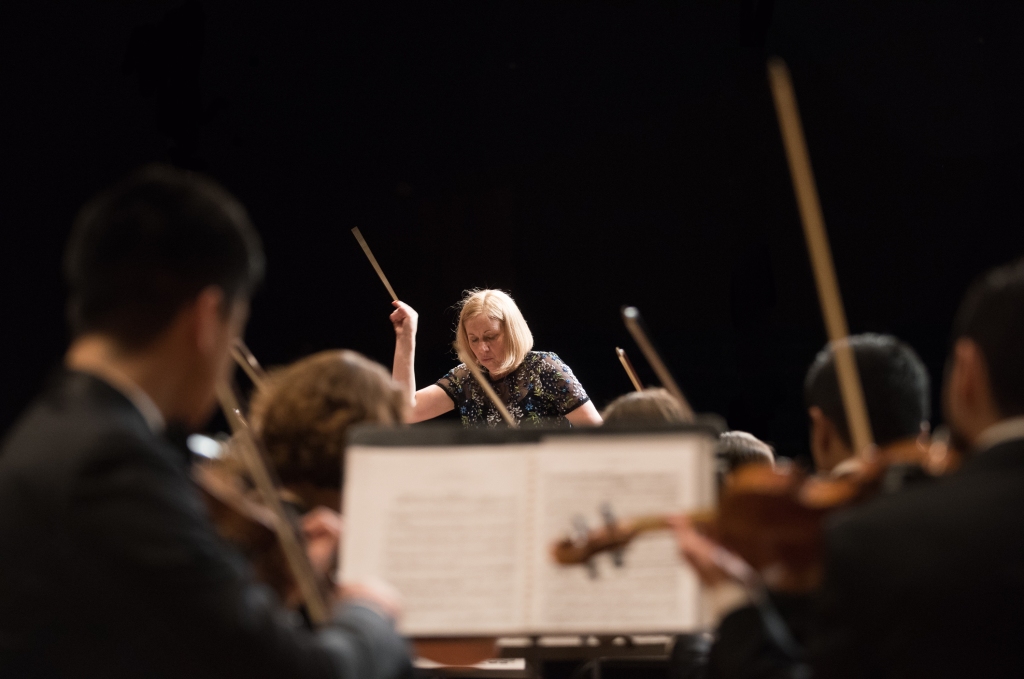
LOWELL — In Catholicism, a requiem is a Mass for the dead, and the music that accompanies the service is meant to help one’s soul pass through to the afterlife.
But surprisingly, these grim moments of mourning can produce commanding, fun and dramatic music fit for a 200-person performance.
Italian composer Giuseppe Verdi’s 19th-century Requiem is just that, and the large choral orchestral work is coming to Lowell.
UMass Lowell, along with the Cambridge Symphony Orchestra and Nashoba Valley Chorale, will stage Verdi’s Requiem in a free community concert on Friday, Nov. 4, at 8 p.m. at the university’s Durgin Hall. They’ll also perform at MIT’s Kresge Auditorium on Sunday, Nov. 6, at 4 p.m., but tickets are $15 to $25. It will be the CSO’s first performance in its 48th season.
Jonathan Richter, a visiting lecturer at UMass Lowell who directs several of the university’s choirs, said Verdi’s Requiem is recognizable, calling it a “quintessential” work and one that is meaningful to the students and recent alumni who’ll perform it.
“Verdi has his very successful, very fun and expressive, operatic style,” Richter said, “and he imports that into the requiem tradition in a really effective way.”
About 130 choir singers from UMass Lowell’s University Choir and Chamber Singers, as well as from the Nashoba Valley Chorale, will gather behind the orchestra during the concert, and four international soloists will also take the stage, said Cynthia Woods, music director of the CSO.
There will be a full orchestra with “full brass,” Woods said, including a cimbasso — a huge, rather rare tuba that “goes all the way down to the floor.”
At the beginning of the piece’s “dies irae” — which translates from Latin to “day of wrath” — audience members will hear trumpets from behind them, beside them and in front of them, harkening judgment day.
“It’s a really fantastic effect,” Woods said. “As they create the tumultuous arrival of the ends of days, the brass will come crushing in and be very, very loud and really fun. Everybody likes that movement.”
For many of Richter’s students, this is their first large-scale concert of their college career, since the pandemic basically halted big, live performances. But music department alumni will also sing on stage, since they, too, missed out on that experience.
As with all the choirs’ other performances, understanding the context in which the music is made is vital, said Dylan MacLeod, a graduate student at UMass Lowell studying music education who will be singing in the show. The work is also entirely in Latin, so MacLeod and the other performers also needed to know what exactly they were singing and in turn, what emotions to display, he said.
Though he hadn’t heard of the Requiem before, MacLeod said it’s a “historically relevant,” roughly 90-minute piece that takes listeners on an emotional roller coaster. He called it a “banger of a musical piece.”
“It’s literally an epic from beginning to end, it’s one concrete piece of music that somebody created so long ago but we are recreating in real time, and it’s going to be the full concert experience,” MacLeod said. “They are going to come away feeling all types of emotions, relief and grief, sadness, on the edge of their seat. They’re going to get it all from watching us perform.”
By uniting music majors with adult performers in a “multigenerational” collaboration, Richter said he hopes to show students that they can continue to stay involved in the arts throughout their lives.
“There’s no better example to show them than the Cambridge Symphony Orchestra and Nashoba Valley Chorale,” Richter said, “because they’re making music with people of all ages and doing really important work along the way.”
But another major part of the concert is community engagement. The concert series will highlight Lowell nonprofit House of Hope, which works to help Massachusetts families experiencing homelessness.
“There’s so many wonderful nonprofit organizations that people don’t know about,” Woods said. “We decided to go with a Lowell community organization this time because we’re up there, and an organization that we felt is really getting in there and building the blocks of a better community.”
Anne Watson Born is the director of the Nashoba Valley Chorale, a Littleton-based group of about 75 people who will also sing at the concert. She said the requiem “always elicits the best music from every composer that sets it,” including Mozart.
The chorale performed the Verdi Requiem in 2016, she said, and will also perform the Mozart Requiem with Symphony New Hampshire in March. Verdi’s piece is “exciting, wild” in some parts, but “gloriously tender” in others, Watson Born said.
“It’s a very engaging work,” she said. “It’s really a fantastic piece.”